After Trump’s Speech, It’s Absurd to Suggest He Can’t Be Beaten
Trump’s surreal, subdued, and unfocused address gave Democrats an opening to turn the tide of this campaign.
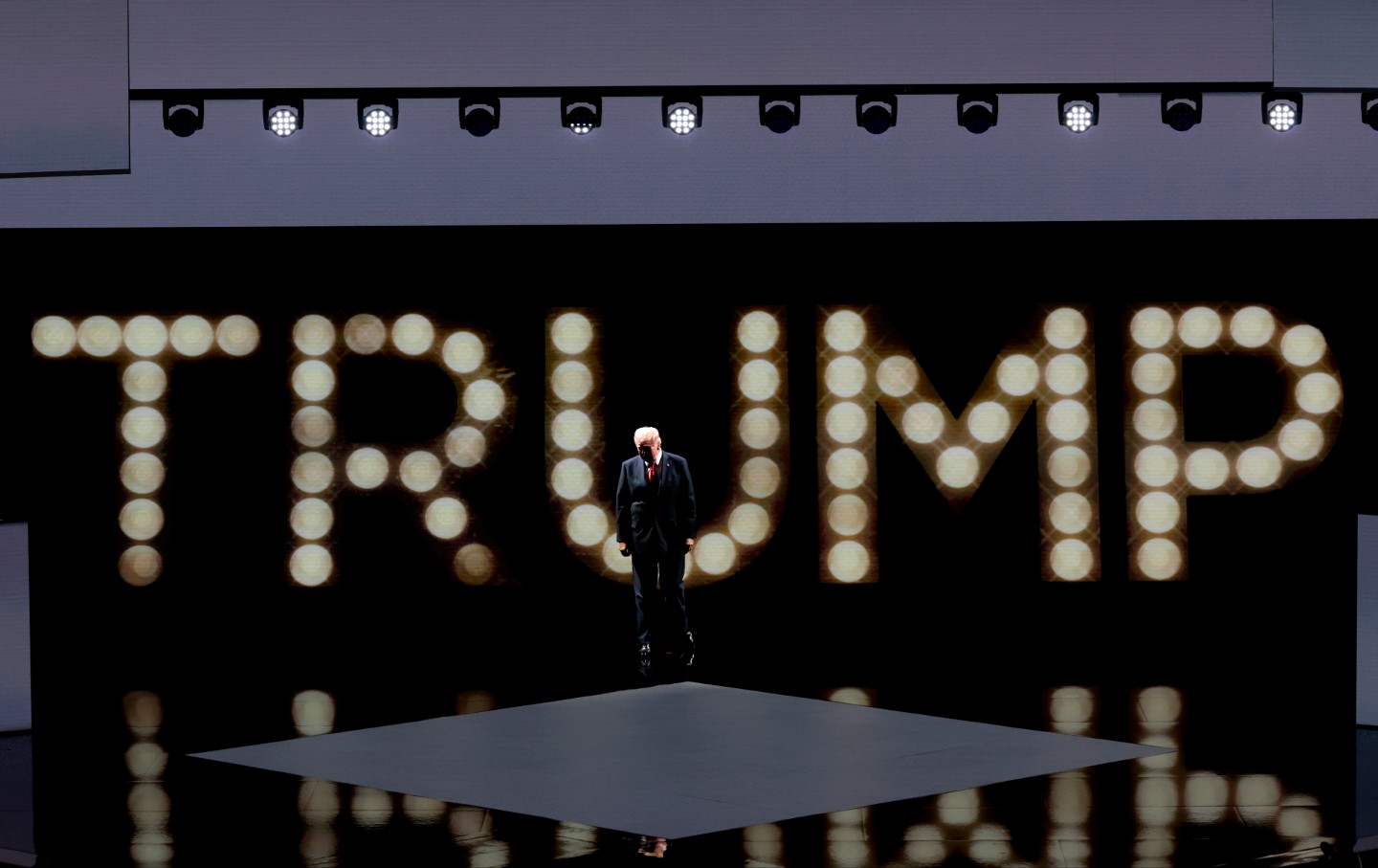
Donald Trump arrives to speak during the Republican National Convention at the Fiserv Forum in Milwaukee, Wisconsin, on Thursday, July 18, 2024.
(Hannah Beier / Bloomberg via Getty Images)
Milwaukee—There can be no doubt that Donald Trump united the GOP delegates, alternates, and hangers-on who gathered at the Republican National Convention here on Thursday night to witness his presidential nomination acceptance speech, the culmination of an evening that also featured Hulk Hogan, Kid Rock and Dana White, the CEO of the mixed martial arts promotion company Ultimate Fighting Championship. Even the bedraggled supporters of Nikki Haley—who famously dismissed the former president as “unstable and unhinged” and announced that “I do not need to kiss the ring” of her rival for the party’s nod—went along with the former United Nations ambassador in offering Trump a “strong,” if humiliating, endorsement.
But there was something off about the night that was supposed to signal Trump’s triumph.
Everyone else did their part. Speaker after speaker hailed Trump as “a hero,” “a tough guy,” “a champion,” “a gladiator” and an “American badass.” The Rev. Franklin Graham announced, “Last Saturday in Butler, Pennsylvania, President Trump had a near-death experience. No question. But God spared his life.” When Trump recalled last week’s assassination attempt, he told the crowd, “I’m not supposed to be here tonight.” They responded, “Yes, you are!” But after that compelling moment, the expectation was that Trump would launch into an epic address.
That never happened.
Instead, Trump delivered a rambling 93-minute speech (by far the longest convention acceptance speech in history) that was strangely subdued—”much more muted than usual,” observed the Associated Press—and unfocused. The former president spun off in so many directions that the technicians running his Teleprompter struggled, without much success, to keep up with the twists and turns. The coherence and natural flow Trump brought to his acceptance speeches at the 2016 Republican National Convention in Cleveland and on the grounds of the White House in 2020 were long gone.
The official line on this year’s speech was that, after the traumatic events of last Saturday, the nominee and his team had decided to tear up his anticipated remarks and prepare a new kind of Trump speech. The candidate, we were told, was going to position himself as a unifier who was prepared to bring a divided country together.
But the speech didn’t deliver. Through much of the night, Trump spoke almost in a monotone, rarely raising his voice. There were some relatively poetic appeals woven into the text, including a section that read, “As Americans, we are bound together by a single fate. We rise together or we fall apart.” But, for the most part, Trump delivered a supremely self-congratulatory acceptance address, a “greatest hits” presentation cribbed from his similarly jumbled rallies. He even included the weird references to fictional serial killer Hannibal Lecter—”the late, great Hannibal Lecter. He’d love to have you for dinner”—that have caused actor Anthony Hopkins, who played Lecter in The Silence of the Lambs, to pronounce himself “shocked and appalled” by Trump’s admiration.
Of course, there was the usual slurry of gripes about the reelection race he didn’t win and the Democratic administration that succeeded him. And there were the even more usual lies, misstatements, and errors of fact—like the section of the speech where Trump congratulated Scott Walker on the “very nice job” he was doing as governor of Wisconsin, seemingly forgetting that Walker was ousted from that job six years ago.
Yet the crowd did not care. Trump was constantly interrupted by shouts of “Trump! Trump! Trump!” and “We love you!”
This was Donald Trump’s convention. And that was enough for him. Instead of reaching out beyond the hall to Americans who are still uncertain about his candidacy for a second term, the man who lost the 2020 popular vote by 7 million ballots was content to bask in the applause of the party faithful, welcoming and encouraging the adulation that was directed his way on the last night of a four-day love fest where speaker after speaker pledged absolute loyalty to his candidacy.
With his ego very much intact, Trump made it clear that he believed that he merited the applause. “I am the one saving democracy for the people of our country,” he announced early in the speech.
In a narrow sense, Trump did have something to celebrate.
After a decade of having to wrestle with “Never Trump” Republicans who openly rejected him, and with the far greater community of “if it must be Trump, so be it” Republicans who grudgingly supported him, the alleged billionaire and convicted felon 34 times over finally had the leaders of the Grand Old Party precisely where he wanted them: cheering his every word with the bleary-eyed enthusiasm of the MAGA cultists he has encouraged them to become. Even when he didn’t deliver on the promise of a historic address, they acted as if he had.
This is the peculiar twist that the 2024 Republican National Convention has put on American politics.
There were few if any pretenses to traditional Republicanism, to the Grand Old Party, its history or its values. The loyalty of this convention was to a man, not a party.
That inside-the-bubble approach to politics gives Democrats, dispirited and in disarray because of the conflict over President Biden’s uncertain prospects, an opening that could prove to be politically consequential. They can speak, more loudly than ever, about the problem with a cult-of-personality politics that has very little vision for America beyond Trump’s recitation of 2016 and 2020 slogans: “Drill, baby, drill!” and “Close our borders!” and “I could stop wars with a telephone call.”
If Thursday night’s speech is any indication, the “vision thing” is going to be a problem for Trump once the convention ends and the home stretch of the campaign begins.
Gone are the days when Trump—whose personal favorability ratings stand at a dismal 42.2 percent in the Real Clear Politics survey of recent polls—could rely on the cohesive, if wrong-headed, Republican vision of former House Speaker Paul Ryan and similarly serious conservatives to fill in the blanks and secure his candidacy. Ryan, whose support was critical to narrowly winning the state of Wisconsin for Trump in 2016, wasn’t even at this year’s GOP convention—even though his hometown of Janesville is just 60 miles away from the Fiserv Forum.
Trump announced on Thursday night that he would be “a president for all of America.” But that made-for-TV appeal from a former reality-TV host doesn’t match reality. While this week’s Associated Press poll found that 70 percent of Americans—including 65 percent of Democrats—thought that President Biden should end his candidacy, a striking 57 percent of Americans—including 26 percent of Republicans and 51 percent of independents—also want Trump to exit the race.
Popular
“swipe left below to view more authors”Swipe →Trump’s numbers in a race against the Democratic nominee, be it Biden or Vice President Kamala Harris, may tick up a bit in coming days. That’s predictable after a week where Americans have witnessed an assassination attempt on Trump, the selection of a vice presidential nominee, and a reasonably successful convention—as well as the apparent unraveling of Biden’s reelection bid.
But the fundamentals of the 2024 race were not changed by Trump’s address on Thursday night. The promise of a new message for his third campaign went unmet.
To win in November, Trump needs more than the support of the party loyalists who literally attached bandages to their ears in order to mimic the look of the former president, whose upper ear was injured in the assassination attempt. (“The ears are the bloodiest part,” Trump informed his audience on Thursday.)
In this deeply divided country, it will require an absolutely united Republican Party outside the convention hall, as well as the overwhelming support of independents who have traditionally leaned Republican. Yet Trump’s retread message is unlikely to wow the doubters who cast unexpectedly high numbers of votes for Haley when she was in the race, and even after she left it. And the longtime Republicans who might draw those swing voters into the fold— the Ryans and Mitt Romneys and Cindy McCains—were far from the convention hall in Milwaukee. They won’t show up for him on the campaign trail this fall. In fact, some of the most prominent of their number will very probably hit the trail for the Democratic ticket.
Former US Representative Adam Kinzinger, a former Republican rising star from Illinois, warns that Trump would “hurt anyone or anything in pursuit of power.” Kinzinger endorsed Biden weeks ago, and would almost certainly back a Harris-led ticket.
Losing Republicans like Kinzinger and Ryan, who now dismisses Trump as an “authoritarian narcissist” rather than a “conservative” and who promises to write in an alternative candidate, is a serious matter. These aren’t Never Trump adventurers who jumped off the Trump train before the 2016 election and never got back on. These are people who once campaigned for Trump and were critical to his success in the only partisan race he ever won.
The Republican Party that made Trump the president in 2016 is gone. It has been replaced over the past eight years by the Party of Trump that was on display in Milwaukee Fiserv Forum this week.
While the former president succeeded in uniting a convention, he did not unite a nation. He did not quell concerns about his extremist record on everything from abortion to cutting taxes for the rich. And his announcing, “The leader of the United Auto Workers should be fired immediately,” isn’t likely to garner much favor with workers who have come to recognize UAW President Shawn Fain as a determined. and strikingly successful champion of their interests.
Nor will Trump’s tepid and unsteady appeals to vague notions of unity be sufficient to cause Americans to forget the chaos and conflict that were associated with his presidency. Smooth words on a Thursday night in Milwaukee won’t calm those who are concerned by Trump’s recent talk of governing as a dictator, or diminish the threat posed by the Project 2025 scheme to remake the federal government in Trump’s image, and as a plaything for the plutocrats of Wall Street.
Trump did his victory lap this week. But the convention is now done, and the campaign—as confusing and uncertain and unwritten as it may remain—is on. It will not be easy for either party. Democrats are in for plenty of highs and lows. But it is absurd to suggest that Trump’s opposition lacks the openings it will need to win.
Beating Trump won’t be any easier than it was in 2020. But Democrats are better positioned than the pundits will tell you to run against the man and what has become of the Republican Party— because, while the GOP is now a cult of personality, the United States is not.
Support independent journalism that exposes oligarchs and profiteers
Donald Trump’s cruel and chaotic second term is just getting started. In his first month back in office, Trump and his lackey Elon Musk (or is it the other way around?) have proven that nothing is safe from sacrifice at the altar of unchecked power and riches.
Only robust independent journalism can cut through the noise and offer clear-eyed reporting and analysis based on principle and conscience. That’s what The Nation has done for 160 years and that’s what we’re doing now.
Our independent journalism doesn’t allow injustice to go unnoticed or unchallenged—nor will we abandon hope for a better world. Our writers, editors, and fact-checkers are working relentlessly to keep you informed and empowered when so much of the media fails to do so out of credulity, fear, or fealty.
The Nation has seen unprecedented times before. We draw strength and guidance from our history of principled progressive journalism in times of crisis, and we are committed to continuing this legacy today.
We’re aiming to raise $25,000 during our Spring Fundraising Campaign to ensure that we have the resources to expose the oligarchs and profiteers attempting to loot our republic. Stand for bold independent journalism and donate to support The Nation today.
Onward,
Katrina vanden Heuvel
Editorial Director and Publisher, The Nation
MILWAUKEE — No one doubts that Donald Trump united the Republican delegates, alternates and hangers on who gathered in Milwaukee Thursday night to witness acceptence of the nomination of the Republican Party on a program that featured Hulk Hogan, Kid Rock and the CEO of the mixed martial arts promotion company Ultimate Fighting Championship. Even the bedraggled supporters of Nikki Haley – who famously dismissed the former president as “unstable and unhinged” and announced that “I do not need to kiss the ring” of her rival for the party’s nod – joined the former United Nations Ambassador in giving Trump their “strong,” if humiliating, endorsement.
Speaker after speaker hailed Trump as “a hero,” “a tough guy,” “a champion,” “a gladiator” and an “American Bad Ass.” The Rev. Franklin Graham announced that, “Last Saturday in Butler, Pennsylvania, President Trump had a near-death experience. No question. But God spared his life.” When Trump recalled the assassination attempt, he told the crowd, “I’m not supposed to be here tonight.” They responded, “Yes, you are.”
So it went with a rambling, oddly subdued speech — “much more muted than usual,” observed the Associated Press. Through much of the night, Trump spoke almost in a monotone, rarely raising his voice. The crowd didn’t care. Trump was constantly interrupted by screams of “Trump! Trump! Trump!” and “We love you!”
By any and every measure, this really was Donald Trump’s convention and he was basking in it, welcoming and encouraging the cheers, embracing the adulation on the last night of a four-day love fest where speaker after speaker pledged absolute loyalty to his candidacy.
And Trump made it clear that he thought that he deserved it all.
“I am the one saving democracy for the people of our country,” the candidate announced early in a long and congratulatory acceptance speech.
After a decade of having to wrestle with “Never Trump” Republicans who openly rejected him, and with the far greater community of “If It Must Be Trump, So Be It” Republicans, who grudgingly supported him, the alleged billionaire and multiply-convicted felon finally had the Grand Old Party where he wanted it: cheering him with the bleary-eyed enthusiasm of the MAGA cultists he has encouraged them to become.
This is the twist that the 2024 Republican National Convention has put on American politics.
There are no longer any pretenses to traditional Republicanism, to the Grand Old Party, to history or to values. The loyalty is to a man, not a party. And that gives Democrats, dispirited and in disarray because of the conflict over President Biden’s uncertain prospects, an opening. They can speak, more loudly than ever, about the problem with a cult-of-personality politics that has very little vision for America — beyond Trump’s recitation of 2016 and 2020 bumber sticker slogans: “Drill Baby Drill!” and “Close Our Borders” and “I Could Stop Wars With a Telephone Call.” Of course, there was the usual slurry of gripes about the reelection race he didn’t win and the Democratic administration that succeeded him. And there were the even more usual errors — like the section of the speech where Trump repeatedly gave shoutouts to the governor of Wisconsin, Democrat Tony Evers, who wasn’t present.
The vision thing going to be a problem for Trump once the convention ends and the campaign begins.
Gone are the days when Trump — whose personal favorability ratings remains dismal: 42.2 percent, in the Real Clear Politics survey of recent polls — could rely on the coherent, if wrong-headed Republican vision of former House Speaker Paul Ryan and similarly serious conservartives to fill in the blanks and secure his candidacy. Ryan, whose support was critical to narrowly winning the state of Wisconsin for the GOP in 2016, wasn’t even at this year’s GOP convention–despite the fact that his hometown of Janesville is just 60 miles away from the Fiserv Forum where Trump announced on Thursday night that he would be “a president for all of America.”
For his part, Ryan has announced that he won’t be voting for Trump in 2024. The same goes for Utah Senator Mitt Romney, Ryan’s president running mate on the party’s 2012 presidential ticket. Trump’s former Vice President Mike Pence, who survived the wrath of Trump backers when he rejected their efforts to overturn the results of the 2020 election, now says, “It should come as no surprise that I will not be endorsing Donald Trump this year.”
Pence complains that Trump’s remake of the Republican Party platform to downplay discussions about conservative hot-button issues, such as restricting access to abortion and banning Chinese ownership of the social media app TikTok,Pence grumbles that, “In each of these cases,” said Pence, “Donald Trump is pursuing and articulating an agenda that is at odds with the conservative agenda that we governed on during our four years.” Trump hailed the unity of the GOP in his carefully constructed speech — and the potential of his candidacy to unite the nation — with sweeping lines like…But that made-for-TV appeal from a former reality-TV doesn’t match reality. While this week’s Associated Press poll found that 70 percent of Americans – including 65 percent of Democrats – thought that President Biden should end his candidacy, a striking 57 of Americans – including 26 percent of Republicans and 51 percent of independents – want Trump to exit the race.
Trump’s numbers in a race against the Democratic nominee, be it Biden or Vice President Kamala Harris, make tick up a bit in coming days. That’s predictable after a week where America have witnessed an assassination attempt on Trump, the selection of a vice presidential nominee and a successful Party convention – as well as the unraveling of Biden’s bid.
But the fundamentals of the 2024 race have not changed. To win in November, Trump needs more than the support of the party loyalists who literally attached bandages to their ears in order to mimic the look of the former president, whose upper ear was injured in the assassination attempt. It will require as absolutely united Republican Party outside the convention hall, as well as the overwhelming support of independents who have traditionally leaned Republican. Yet, the Republican Party that appealed to those slightly swingy voters is no more. And the long-time Republicans who might draw them into the fold – the Ryans and Romneys and Cindy McCain’s — were far from the convention hall in Milwaukee. They won’t show up for him on the campaign trail this fall. In fact, some of the most prominent of their number will very probably hit the trail for the Democratic ticket.
Former U.S. Rep. Adam Kinzinger, a former Republican rising star from Illinois, warns that Trump would “hurt anyone or anything in pursuit of power.” Kinzinger endorsed Biden weeks ago, and would almost certainly back a Harris-led ticket.
Losing Republicans like Kinzinger and Ryan, who dismisses Trump as an “authoritarian narcissist” rather than a “conservative” and promises to write-in an alternative candidate, is a serious matter. These aren’t “Never Trump” adventurers who jumped off the Trump train before the 2016 election and never got back on. These are people who once campaigned for Trump and were critical to his success in the only partisan race he ever won.
The Republican Party that made Trump the president in 2016 is gone. It has over the past eight years been replaced by the Party of Trump. And, despite the fact that the former president has united a convention in Milwaukee, this is not the party of a united American electorate. There is plenty of dissent and division, much of it a reaction to Trump’s extremist record on everything from abortion to cutting taxes for the rich. To be sure, Trump tried to position himself as a more moderate and appealing contender in his acceptance speech Thursday night. But his appeals to XXX won’t cause Americans to forget the chaos and conflict that were associated with his presidency. Smooth words on a Thursday night in Milwaukee won’t make Trump’s recent talk of governing as a dictator, or diminish the threat posed by the 2025 scheme to remake the federal government in Trump’s image and as a plaything for the plutocrats of Wall Street.
Trump did his victory lap this week. But the convention is now done, and the campaign – as confusing and uncertain and unwritten as it may remain – is on. It will not be easy for either party.
But it is absurd to suggest that Trump’s opposition lacks the openings it will need to win.
Beating Trump won’t be any easier than it was in 2020. But Democrats are better positioned that the pundits will tell you to run against the man and what has become of the Republican Party — because, while the GOP, is now a cult of personality, the United States is not.
More from The Nation
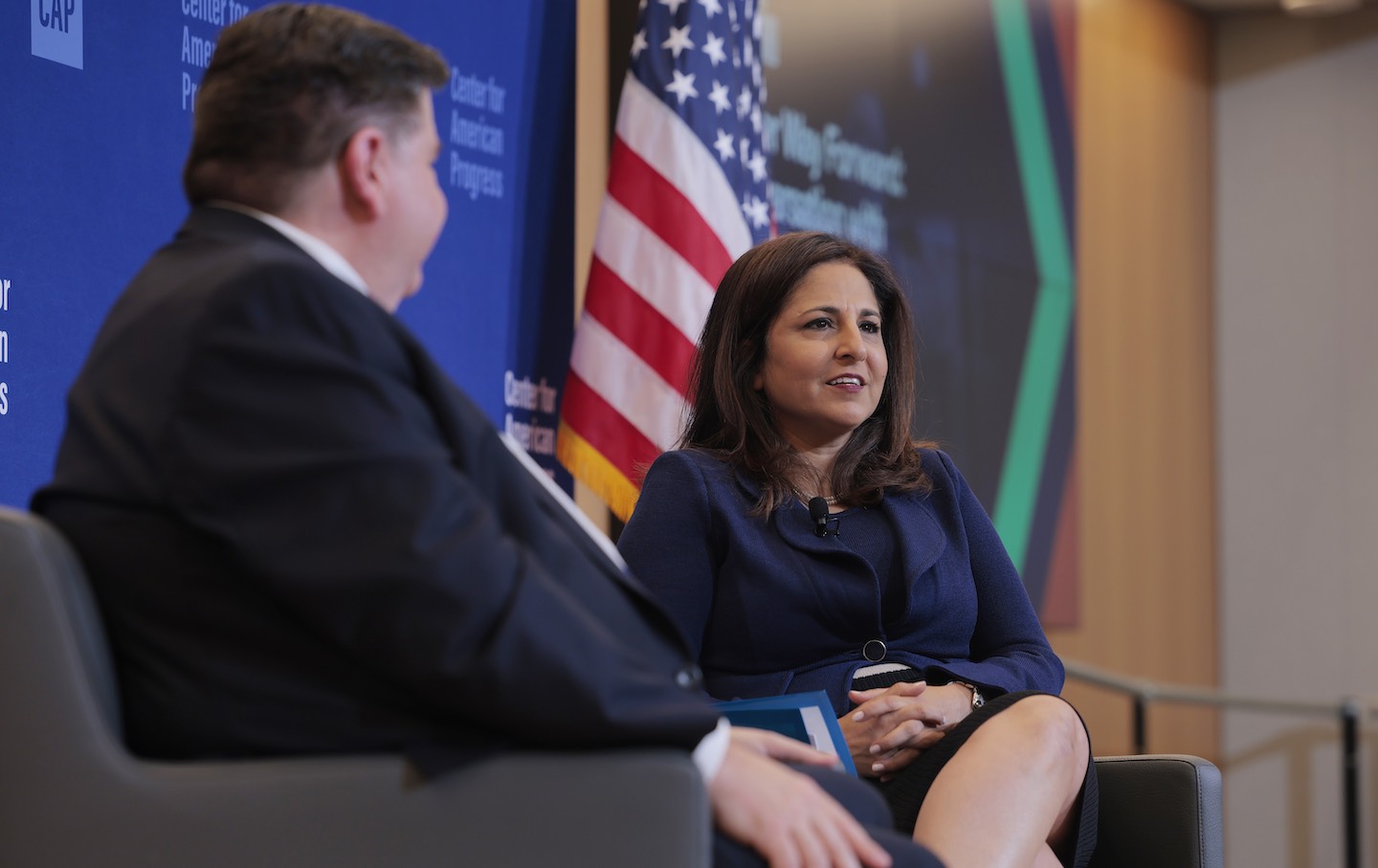
Democratic Donors Packed the House for an “Actual Billionaire” Democratic Donors Packed the House for an “Actual Billionaire”
J.B. Pritzker's appearance at the Center for American Progress met with a resounding reception. But is his elevation to the national stage the way to reach working people?

Trump’s War on Public Lands Moves to its Second Phase Trump’s War on Public Lands Moves to its Second Phase
The Great Firing continues—and the next round of layoffs will reveal how much power over public lands the Trump administration will cede to corporations.
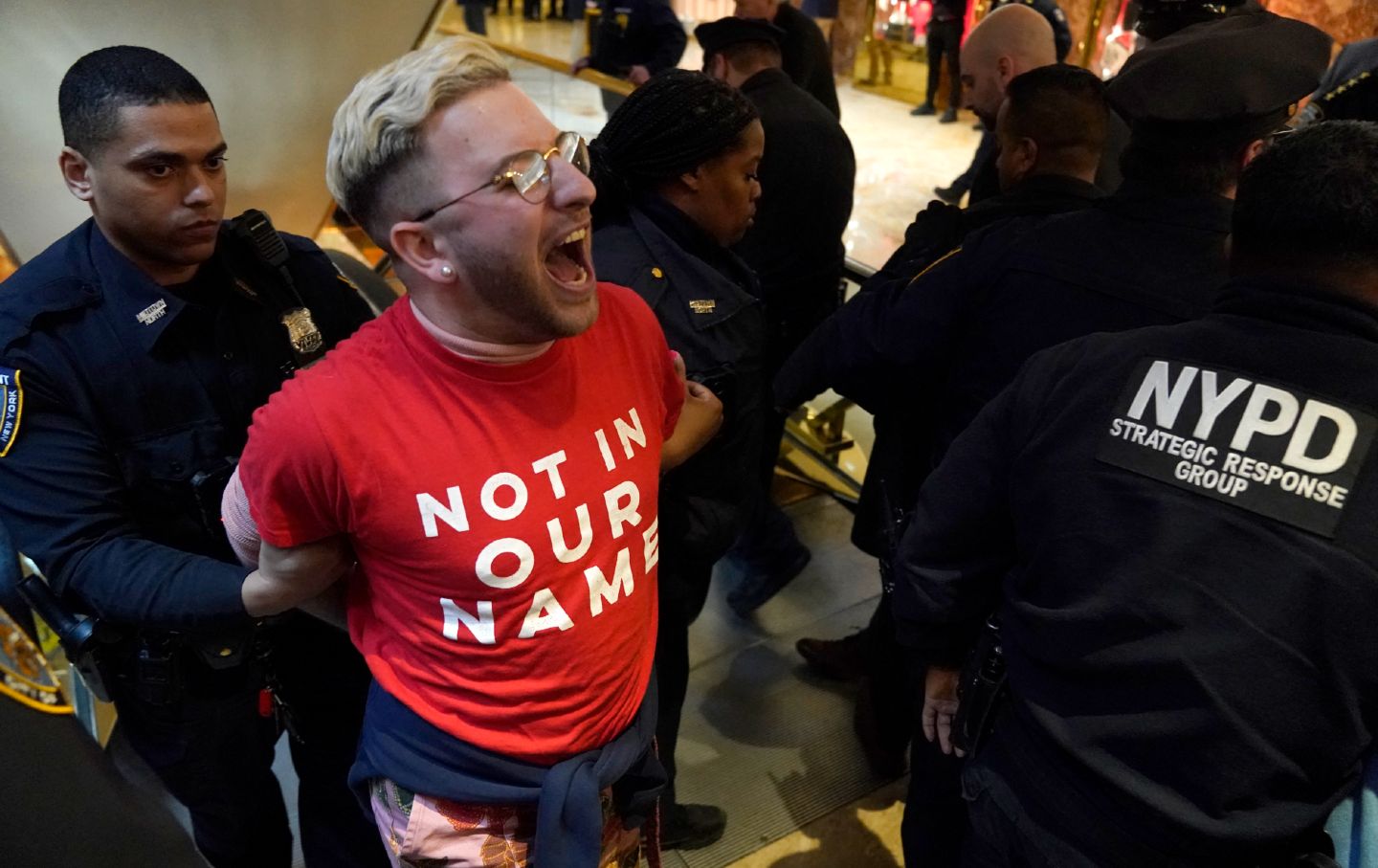
Trump’s Mob-Boss Offer to Us Jews: Accept “Protection”—or Else Trump’s Mob-Boss Offer to Us Jews: Accept “Protection”—or Else
Under the guise of “fighting antisemitism,” Trump is shredding our rights and telling us we are safe.

Protest Tesla Protest Tesla
Street action at Tesla, Route 22, Springfield, NJ, March 1, 2025.
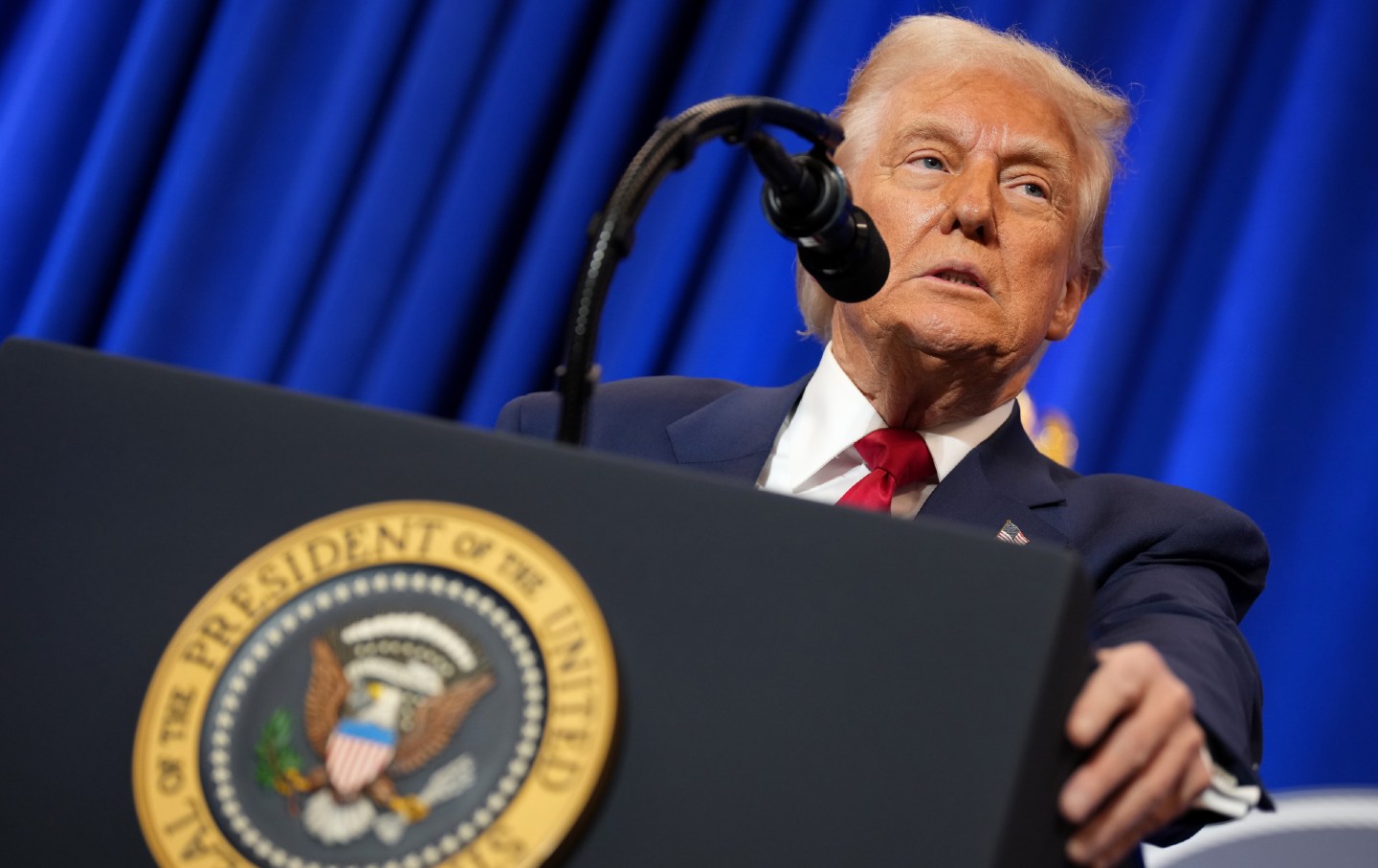
Trump Is Trying to Create His Own Personal Legal Strike Force Trump Is Trying to Create His Own Personal Legal Strike Force
With his speech at the DOJ, Trump officially declared his intention to reshape the legal system according to his whims and will.
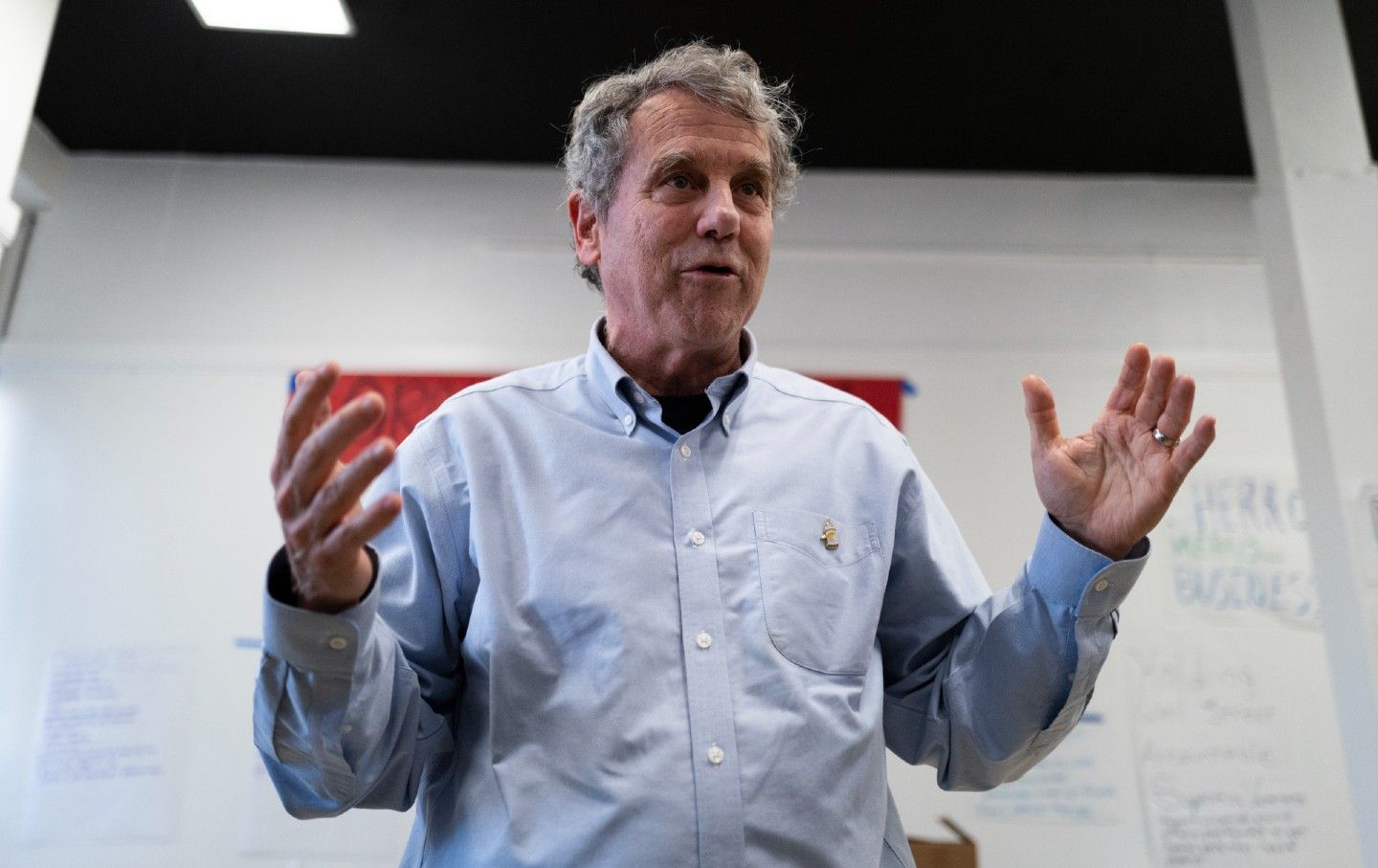
How the American Left Became Conservative How the American Left Became Conservative
Against the radical, if reactionary, experiment run from the White House, everyone from Democratic leaders in Congress to MSNBC hosts have turned to the defense of institutions.


